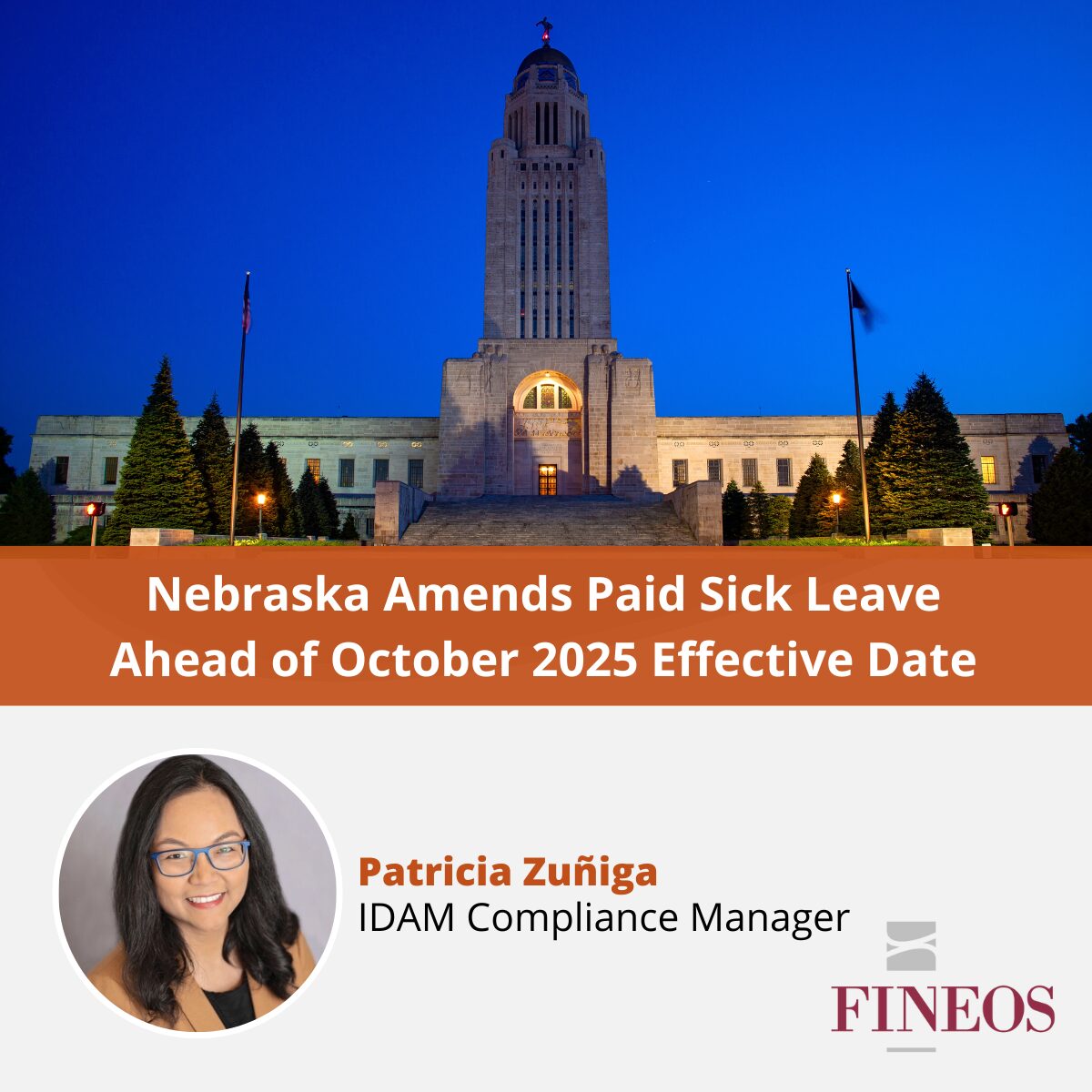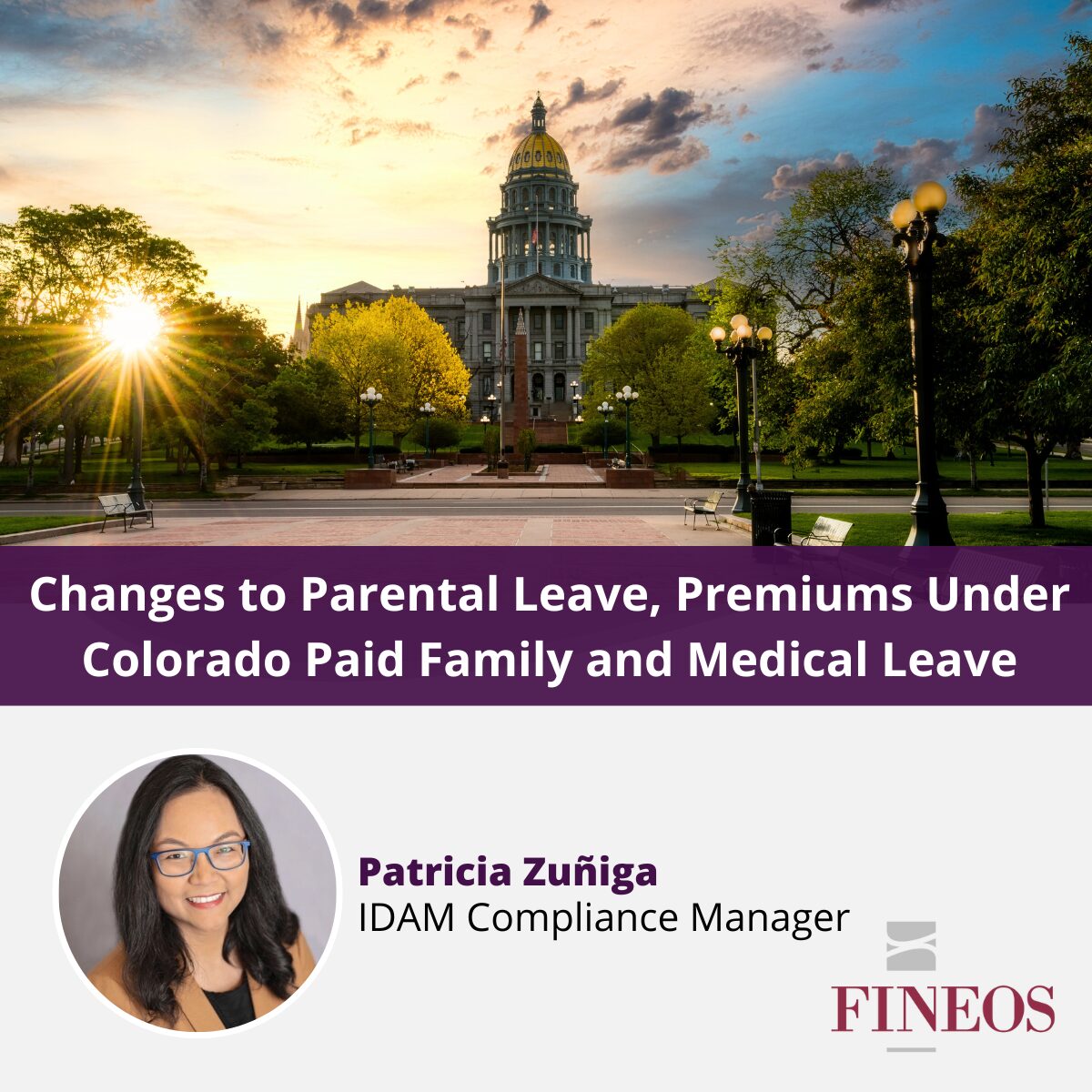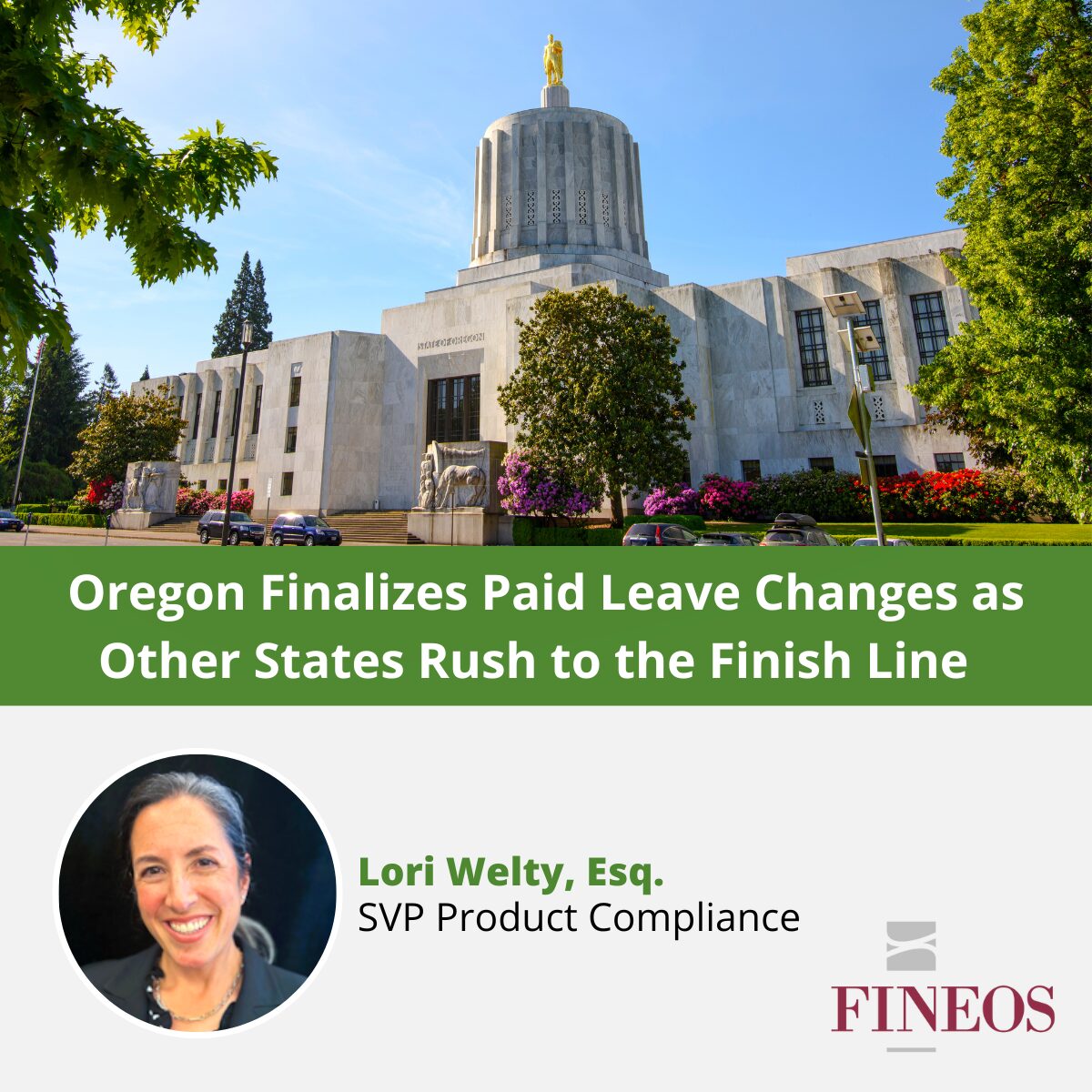While some may be enjoying the lazy days of summer at the moment, for the absence management industry, mid-summer continues the flurry of regulatory activity that we’ve seen all year in 2020. Below are recent updates from the U.S. Department of Labor, Colorado, and Georgia.
DOL Releases New FMLA Forms
The U.S. DOL has released new FMLA forms, available here: https://www.dol.gov/agencies/whd/fmla/forms. For carriers and employers using the DOL’s FMLA forms, be sure to check out the new forms and make updates as needed.
In addition, the DOL issued a news release announcing an upcoming publication of a Request for Information (RFI) seeking feedback regarding the FMLA administration. The purpose of the RFI is to gather information regarding the FMLA’s effectiveness and areas requiring further compliance assistance to remain current with the modern workplace.
Colorado Healthy Families and Workplaces Act
On July 14, Colorado Governor Polis signed into law Senate Bill 205, establishing the Healthy Families and Workplaces Act. This law requires employers to provide two benefits: emergency short-term COVID-19 paid sick leave for those not covered by the FFCRA and comprehensive long-term paid sick and safe leave benefits.
Employees: All employees of employers with 16 or more employees are eligible for paid sick leave benefits as of January 1, 2021 and employees of employers with fewer than 16 employees are eligible for paid sick leave benefits as of January 1, 2022. Employees begin to accrue paid sick leave when employment begins and may use accrued paid sick leave as it is accrued.
Leave Reasons: An employee can take paid sick and safe leave for the following reasons:
- The employee’s medical condition, including physical or mental illness, injury, or health condition or preventive medical care;
- To care for an employee’s family member with a medical condition, including physical or mental illness, injury, or health condition or need for preventive medical care;
- When the employee or family member has been the victim of domestic abuse, sexual assault, or harassment; and
- Due to a public health emergency, for the closure of (i) the employee’s place of business; or (ii) the school or place of care of the employee’s child and the employee needs to be absent from work to care for the employee’s child.
- The new law also requires that immediately and until December 31, 2020, all employers, regardless of size, provide paid sick leave in the amount and for the purposes provided in the federal Emergency Paid Sick Leave Act in the Families First Coronavirus Response Act, to each employee who is not already covered under that law.
Entitlement: Employees earn one hour of paid sick leave for every 30 hours worked, up to 48 hours per year. An employer is permitted to frontload the time instead of using an accrual program. While an employee can carry forward 48 hours per year, an employer can limit use of sick leave to 48 hours per year.
Public Health Emergency: In addition to the above reasons, employers must supplement paid sick leave to ensure that an employee can take the following amount of paid sick leave in the event of a public health emergency:
- Employees who work 40 or more hours per week: 80 hours of leave
- Employees who work less than 40 hours per week: the amount of time the employee is scheduled to work in a 14-day period or the amount of time the employee actually works on average in a 14-day period.
Leave under this section is permitted when an employee needs to self-isolate and care, or obtain medical diagnosis, care, treatment, or preventive care for oneself because the employee or employee’s family member is diagnosed with or experiencing symptoms of a communicable illness that is the cause of a public health emergency.
Employer Policy: An employer that has an equivalent paid leave policy for its employees can satisfy the requirements and is not required to provide additional paid sick leave to its employees.
Adverse Action: Employers cannot take retaliatory personnel action or discriminating against an employee because the person has requested or used paid sick leave.
Employer Notification: Employers must provide certain notification to employees about their rights under the new law. An employer complies with the notice requirements of this section by providing written notice and displaying a poster in a conspicuous and accessible location.
Recordkeeping: Employers must retain records for each employee for a two-year period, documenting hours worked, paid sick leave accrued, and paid sick leave used.
Georgia Extension of Kin Care Law
On June 29, Georgia Governor Kemp signed into law Senate Bill 408, amending its current “Kin Care” law. Existing law requires that employers that provide sick leave must allow an employee to use up to five days of sick leave for the care of an immediate family member. The law was originally set to sunset on July 1, 2020 but Senate Bill 408 extends it applicability to July 1, 2023.
Simplify the complex with FINEOS Absence
Simplify the complex with FINEOS Absence that supports federal, state, municipal, state-mandated and employer paid sick leave plans. The FINEOS Integrated Disability and Absence Management (IDAM) solution brings together the robust FINEOS Absence, the market-leading FINEOS Claims and FINEOS Payments to develop a single book of record for all absence management related services. If you’re ready to simplify the complex landscape of absence management, contact us at info@FINEOS.com.


